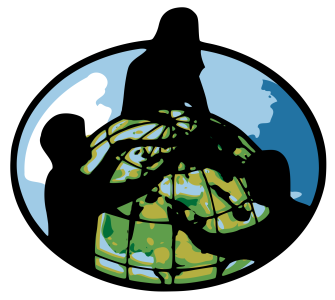So, full disclosure: this post is filled with a whole lot of questions and not a ton of answers.
Recently, like most educators, I’ve been struggling with teaching in a world full of uncertainties in a strongly divided society. I know my work must prepare my students to thrive in a world that doesn’t equally value their voice and worth. I know I need to help them discover skills they will need to advocate for themselves and those in need when they see injustice.
While, yes, teaching is inherently political, I am trying to remember that the “filter bubble” is also a very real thing that I’m without question affected by. My personal social media feeds have been filled with countless arguments in favor of the #TakeAKnee. I myself have very strong personal feelings about it (and about teaching the value of protest in general). If asked by a student, I had a diplomatic response in support of the protest ready to go.
Yet, when I was creating a written-response assignment to the protest, I felt compelled to try and provide them with opinions and resources that supported both sides. While, yes, initially I was tempted to give them pieces that supported the protest, I struggled with the idea that to do so would be unfair and partisan.
Which can have a lot of problematic implications as a teacher. I inherently wield power in my position, and given the societal construct through which my role is created, students are predisposed to listen to me and believe what I say is true. Beyond that, since I’m the one grading them, they could feel that they are unable to disagree with me without some kind of ramification (something that I desperately try to ensure they know is not true, but alas). Given all of this, I am constantly asking myself: What is the line between “education” and “indoctrination”?
...and like I said, I don’t really have a good answer for that. There are some things that seem undeniable truths that, as much as I might want to be “fair” and present both sides, seems irresponsible to do so. The veracity of the Holocaust, climate change—these are all examples of things that, sure, the internet might claim has “two sides,” yet I admittedly refuse to debate in my classroom. To some extent, I have decided that I will not debate facts, especially when to do so could mean the continued detriment or perpetuated negative and unfair beliefs about other people.
But if that’s my line, where do I draw it? I cannot deny that racism is an evil, still-prevalent force. It’s not only something that I’ve witnessed and lived, but it’s something that has been proven multiple times (in policing, education, housing, and more). I cannot deny that protest is an effective means to start a discussion.
So, why does standing boldly in support of these players feel unfair? Why, if I know what they stand for is right, do I struggle so mightily to name their actions as progress?
Is it because there is an honest, healthy desire to hold myself accountable and be impartial?
Or is it because I am still the product of a system that teaches me to be afraid to stand up for truth in the face of power?
And how am I going to figure out which it is?



